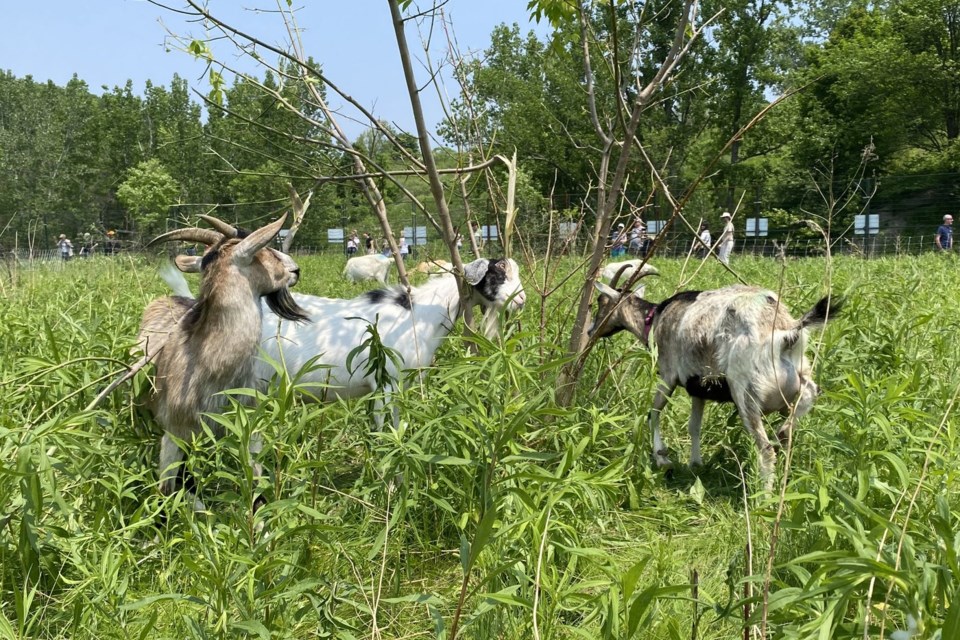TORONTO — Dozens of goats have returned to a Toronto park to munch on invasive and woody plants as part of an eco-friendly city project.
After a successful pilot last summer, a herd of 50 goats is grazing a new section of the Don Valley Brick Works Park meadow over two days this week.
"The goats are good at invasive species management, reduction of woody encroachment, they improve soil quality and are really just an overall benefit to the meadow,” said Cheryl Post, project manager and a natural environment specialist with the city.
Post said she hopes to build off last year's positive results, with the goats mainly targeting invasive plants while allowing native species to grow.
"Although that will take some years to see how it goes, we've been noticing some really obvious and immediate impacts to the invasive species, which is great," she said.
King City-based company Goats in the City provided the goats that are bred specifically for prescribed grazing projects, and are even trained to interact with visitors.
“What we really do at Goats in the City is to observe goats, know what they prefer, know what they like, and then apply that to the kind of plants that we want to get rid of,” company president Ian Matthews said. “We're basically just using them for what they instinctively would be doing anyway.”
The goats also drew visitors to the park as it offered educational tours about the animals' strategic grazing. Among them was Kevork Hacatoglu, who came on Wednesday to learn about eco-friendly ways of maintaining the city.
"It is a way of reducing the impact on the environment," he said. "It's a more circular way of maintaining the park and sensitive ecosystems. The more solutions like this, the better."
Plant regrowth and other results of the project will be monitored over multiple years in partnership with the Toronto Field Naturalists.
If all goes well, city staff say the project will continue in the coming years.
This report by The Canadian Press was first published June 11, 2025.
Natasha Baldin, The Canadian Press



